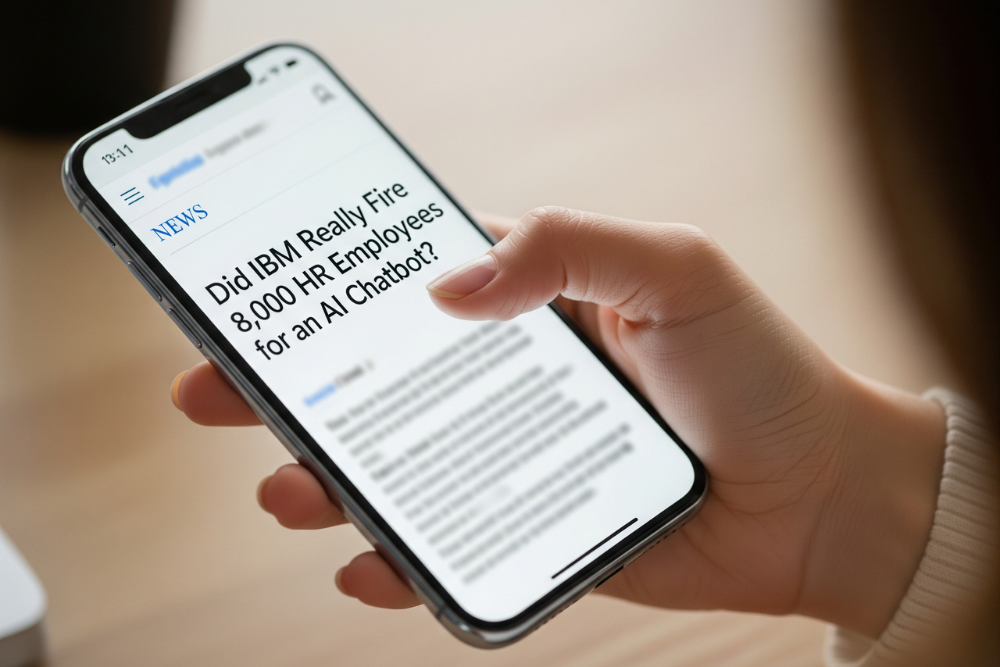Outsourcing has always been a lightning rod topic in the United States. For decades, businesses have looked abroad for cheaper labor markets, access to specialized talent, and the flexibility to create teams quickly without the burden of U.S. overhead costs. Meanwhile, politicians of both parties have used the issue as a way to stir emotions, appeal to voters’ pocketbook anxieties, and signal that they are defending the “American worker.”
Now comes the latest entry: the Hire Act, a piece of legislation introduced by Senator Bernie Moreno in May 2025. This bill would slap a 25% tax on outsourcing, strip away tax deductions for payments to overseas workers, and funnel the money raised from the outsourcing tax into a workforce fund designed to support apprenticeships and workforce development programs inside the U.S.
It sounds patriotic. It sounds tough. But for American businesses that depend on outsourcing to stay competitive, the bill could be a game-changer and not in a good way.
The Basics Behind the Hire Act
At its core, the Hire Act (Halting the International Relocation of Employment Act) aims to discourage American companies from sending jobs overseas. Here’s the formula:
- A 25% excise tax on any money paid by a U.S. company or taxpayer to foreign workers or firms if the work benefits U.S. customers.
- Those payments are also non-deductible, meaning a company loses the normal corporate tax write-off.
- The money raised from the outsourcing penalty will be collected into a new Domestic Workforce Fund, which will be used to support apprenticeships and apprenticeships and workforce development programs across the country.
To put it in simple math: If you’re paying $100,000 annually to an overseas team, you’d be on the hook for an extra $25,000 to the IRS, plus lose the tax deduction on the original $100,000. That’s not just a nudge away from outsourcing, it’s a shove.
Not the First Attempt - Remember the Call Center Act?
The Hire Act isn’t the first time Washington has taken a swing at outsourcing. Lawmakers have long used this hot-button issue to score political points, and one of the more memorable efforts was the Keep Call Centers in America Act.
That bill would have forced companies to disclose when calls were routed overseas, slapped penalties on firms that offshored support jobs, and even barred some of them from receiving federal contracts. While it generated plenty of headlines, it never became law.
The difference now is that the Hire Act goes far beyond call centers, defined as any money paid by a U.S. company or taxpayer for offshore services. In other words, if the Call Center Act was a jab, this new bill will hit like a knockout punch.

Will the Keep Call Centers in America Act Change Your Business?
The bipartisan Keep Call Centers in America Act of 2025 could reshape AI use, offshoring, and call center jobs. Is your customer service ready for the change?
Bill Would Change the Outsourcing Landscape Overnight
Unlike previous proposals that mostly focused on call centers or disclosure requirements, this bill would apply broadly. It’s defined as any money paid for offshore services that benefit U.S. consumers, software development, customer support, design, accounting, you name it.
The message is clear: if your business relies on global talent, the bill will hit you right in the pocketbook.
American Politics Meets Global Business
It’s important to understand why this is happening now. Outsourcing has always been politically unpopular, but in 2025, the issue is wrapped in broader debates about:
- AI & automation displacing American jobs.
- Geopolitical concerns around supply chains, especially in Asia.
- Economic populism, where both parties try to prove they’re “tough on outsourcing” to win swing voters.
Enter Senator Bernie Moreno, a freshman Republican senator from Ohio, who has made this his signature issue. For Moreno, the Hire Act isn’t just policy, it’s branding. His press releases say the bill would “crack down on outsourcing” and use the money raised from the outsourcing tax to “invest in American workers.”
The political optics are powerful. The economic logic? That’s where things get murkier.

Did IBM Really Fire 8,000 HR Employees for an AI Chatbot?
IBM layoffs in 2025 fuel debate: Did AI replace thousands of HR employees, or is the story more complex? Discover what really happened and what workers must do next.
Why the Hire Act Sounds Good in Washington…
Supporters of the Hire Act argue it’s common sense. Why should an American company or taxpayer get a tax break for sending jobs overseas when we need jobs here at home?
By imposing a 25% penalty and removing deductibility, the bill tries to make outsourcing less cheaper and force firms to consider domestic hires. The money raised from the outsourcing tax would then be recycled back into the workforce fund, helping to support apprenticeships and workforce development programs that create new American job pipelines.
On paper, it’s a Robin Hood move: take from the outsourcing firms, give to the local workforce.
…But Why the Bill Will Hit American Companies Hard
Here’s the flip side: businesses outsource because it makes sense. The U.S. labor market is tight, wages are high, and specialized tech talent is often in short supply. Outsourcing allows companies to scale faster, compete globally, and keep prices down for consumers.
With the Hire Act, that advantage gets gutted. Companies will be forced to either:
- Absorb the 25% tax plus the loss of deductions, blowing up budgets.
- Pass the costs on to customers, raising prices.
- Shrink their operations, hiring fewer people overall, both abroad and at home.
Ironically, the bill would risk making U.S. businesses less competitive globally, which could ultimately cost more American jobs than it saves.
American Companies Face a Fork in the Road
For a SaaS startup in San Francisco or a mid-market e-commerce company in Texas, this isn’t abstract policy, it’s survival math.
Imagine you currently employ 20 developers in the Philippines at $25/hour. That’s about $1M a year in payroll. Under the Hire Act, the IRS swoops in to collect any money raised through the outsourcing penalty:
- Extra $250,000 in excise tax.
- Plus, no deduction on the original $1M expense, costing another ~$210,000 in higher taxes.
Total hit: ~$460,000. That’s the equivalent of losing nearly half your offshore savings overnight.
Bill Would Disrupt Pocketbooks and Planning
For CFOs and founders, the bill will hit the pocketbook in ways that ripple through business planning. Budgets for growth, marketing, or even hiring Americans could be squeezed.
And here’s the kicker: there’s no guarantee that the money raised from the outsourcing tax will actually create the kind of jobs U.S. businesses need. While it will be used to support apprenticeships and workforce development, most companies aren’t hiring apprentices, they’re hiring skilled engineers, designers, and analysts.
That gap makes the Hire Act more of a political signal than an economic solution.
American Outsourcing Companies in APAC
Here’s where outsourcing providers like iScale Solutions come in. For decades, firms like ours have helped American businesses tap into APAC’s deep pools of skilled talent. The benefits have been undeniable: cost savings, speed to market, and the ability to stay nimble in competitive industries.
The Hire Act doesn’t change the reality that outsourcing works. It simply changes the pocketbook math. American businesses will now have to weigh:
- Is paying the 25% penalty still cheaper than hiring domestically?
- Can we create hybrid models (near-shore, partial offshore) to reduce exposure?
- How do we build resilience if the bill passes, stalls, or gets watered down?
Bill Would Create Unintended Consequences
By making outsourcing more expensive, the Hire Act could actually accelerate automation. If you can’t afford offshore developers at $25/hour (plus taxes), you might as well pay for AI tools or automated platforms.
That means fewer jobs abroad and fewer jobs in the U.S. It’s a lose-lose.
Meanwhile, large corporations with deep pockets will adapt easily, while startups and SMBs (those most in need of outsourcing) will be the ones crushed. In that sense, the bill would end up hurting the very entrepreneurs and small businesses that drive American innovation.
What Can American Companies Do Now?
So what’s the play for American companies staring down this legislation?
- Model the impact: Calculate how the 25% excise tax and loss of deductibility will affect your costs.
- Diversify talent sources: Consider hybrid models that combine U.S. hires, near-shore (e.g., Mexico), and offshore teams.
- Negotiate flexibility: Build clauses into outsourcing contracts that account for tax law changes.
- Get political: Industry associations, chambers of commerce, and business groups will lobby hard against this bill. Adding your voice matters.
- Plan for resilience: Assume the bill could pass in some form. Start scenario planning now.
What Does the Hire Act Really Mean for Your Business?
The Hire Act is bold, headline-grabbing legislation that makes for great campaign soundbites. Senator Bernie Moreno gets to say the bill would fight outsourcing. The press gets a storyline about “bringing jobs home.” And the IRS gets to collect any money raised into a workforce fund that will supposedly support apprenticeships and workforce development programs.
But for real-world businesses, the bill will hit hard. It will make outsourcing more expensive, it will punish small and mid-sized firms, and it risks making American companies less competitive globally.
Here’s the truth: the global economy doesn’t stop at the U.S. border. Outsourcing isn’t going away, it’s evolving. And this is where iScale Solutions comes in. No matter what happens in Washington, we’ll help American companies navigate the landscape, model the tax impact, and build smarter, more resilient teams across APAC. Whether the law passes as written, gets watered down, or dies in committee, iScale’s expertise ensures that your company continues to access world-class talent at sustainable costs.
In other words: politicians may write bills, but you still have a business to run. With iScale Solutions as your partner, you’ll keep growing, no matter what happens.


